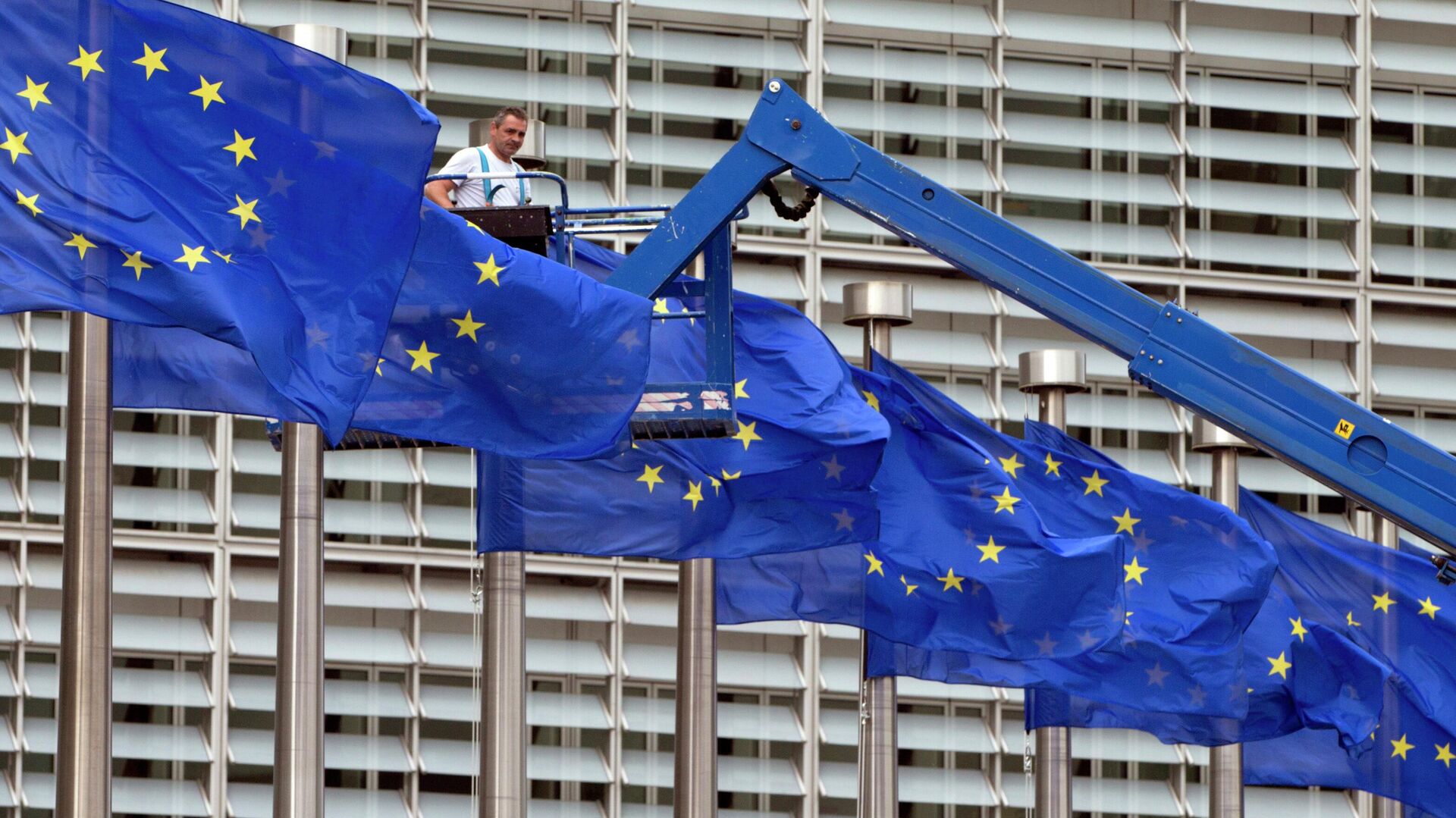https://sputnikglobe.com/20221129/eu-governments-once-again-fail-to-agree-on-market-cap-on-russian-oil-1104806459.html
EU Governments Once Again Fail to Agree on Market Cap on Russian Oil
EU Governments Once Again Fail to Agree on Market Cap on Russian Oil
Sputnik International
The Western governments plan to limit Moscow's revenues from hydrocarbons and yet maintain a steady flow of Russian oil on global markets. But there is discord... 29.11.2022, Sputnik International
2022-11-29T05:03+0000
2022-11-29T05:03+0000
2023-04-12T17:04+0000
energy crisis in europe
economy
fuel
fuel price
fuel shortage
poland
european union (eu)
https://cdn1.img.sputnikglobe.com/img/07e6/06/03/1095961953_0:0:3133:1762_1920x0_80_0_0_620632a3e3f7ba87b9eb41fda1482ef7.jpg
EU governments did not come once again to agreement on Russian oil on Monday because of Poland's uncompromising position. Warsaw insists that the price ceiling should be set lower than proposed by the G7 and the European Commission. The executive branch of the EU proposed to set the price at $65 per barrel. The G7 proposal was almost similar - at $65-70. Poland argues that these proposals are “too generous”. Warsaw stresses that Russia is already trading its oil at a discount, which means the price cap will have little to zero effect on the Russian economy. As a matter of fact, the price ceiling must be supported by all EU nations in order to be implemented.If there is no deal by next Monday, the European Union will have to implement harsher measures and introduce a complete ban on all Russian crude oil imports from December 5 and on petroleum products from February 5. Russia supplies around 10% of world’s oil, so, as economists point out, a complete ban will create a tremendous market shock.Economic sanctions against Russia have already backfired on Western economies, pushing some of them intro recession. Energy bills have soared dramatically, leaving millions of European citizens on the brink of fuel poverty.Russian production costs are currently estimated by the EU as $20 per barrel. Russian officials many times have stressed that Moscow will simply stop supplying oil and gas to the countries that adopt a price cap initiative.Deputy Prime Minister Alexander Novak labeled the price cap as an “unprecedented intervention” in the free market. Also, he stressed that such a politicization of the energy sphere can only lead to a shortage of resources on the global market.Kremlin spokesman Dmitry Peskov said that Moscow “won't shoot its own leg” by supplying oil to the countries that introduced the price ceiling. Russia is re-orienting fuel exports towards Asian markets. For instance, according to British media, in November India bought roughly 40% of all Russian Urals Crude.Oil prices are soaring on expectations that the OPEC+ countries will deepen supply cuts. The market is wating for the cartel to decide to reduce output by another 2 million barrels at the December 4 gathering in order to support prices. West Texas Intermediate reached $79 per barrel on these news.
poland
Sputnik International
feedback@sputniknews.com
+74956456601
MIA „Rossiya Segodnya“
2022
News
en_EN
Sputnik International
feedback@sputniknews.com
+74956456601
MIA „Rossiya Segodnya“
Sputnik International
feedback@sputniknews.com
+74956456601
MIA „Rossiya Segodnya“
who is responsible for energy crisis, fuel poverty, discord among eu members, russian oil, hydrocarbons
who is responsible for energy crisis, fuel poverty, discord among eu members, russian oil, hydrocarbons
EU Governments Once Again Fail to Agree on Market Cap on Russian Oil
05:03 GMT 29.11.2022 (Updated: 17:04 GMT 12.04.2023) The Western governments plan to limit Moscow's revenues from hydrocarbons and yet maintain a steady flow of Russian oil on global markets. But there is discord among the EU nations.
EU governments did not come once again to agreement on Russian oil on Monday because of Poland's uncompromising position.
Warsaw insists that the price ceiling should be set lower than proposed by the G7 and the European Commission. The executive branch of the EU proposed to set the price at $65 per barrel. The G7 proposal was almost similar - at $65-70. Poland argues that these proposals are “too generous”. Warsaw stresses that Russia is already trading its oil at a discount, which means the price cap will have little to zero effect on the Russian economy. As a matter of fact, the price ceiling must be supported by all EU nations in order to be implemented.
If there is no deal by next Monday, the European Union will have to implement harsher measures and introduce a complete ban on all Russian crude oil imports from December 5 and on petroleum products from February 5. Russia supplies around 10% of world’s oil, so, as economists point out, a complete ban will create a tremendous market shock.
Economic sanctions against Russia have already backfired on Western economies, pushing some of them intro recession. Energy bills have soared dramatically, leaving millions of European citizens on the brink of fuel poverty.
Russian production costs are currently estimated by the EU as $20 per barrel. Russian officials many times have stressed that Moscow will simply stop supplying oil and gas to the countries that adopt a price cap initiative.
Deputy Prime Minister Alexander Novak labeled the price cap as an “unprecedented intervention” in the free market. Also, he stressed that such a politicization of the energy sphere can only lead to a shortage of resources on the global market.
Kremlin spokesman Dmitry Peskov said that Moscow “won't shoot its own leg” by supplying oil to the countries that introduced the price ceiling. Russia is re-orienting fuel exports towards Asian markets. For instance, according to British media, in November India bought roughly 40% of all Russian Urals Crude.
Oil prices are soaring on expectations that the OPEC+ countries will deepen supply cuts. The market is wating for the cartel to decide to reduce output by another 2 million barrels at the December 4 gathering in order to support prices. West Texas Intermediate reached $79 per barrel on these news.


